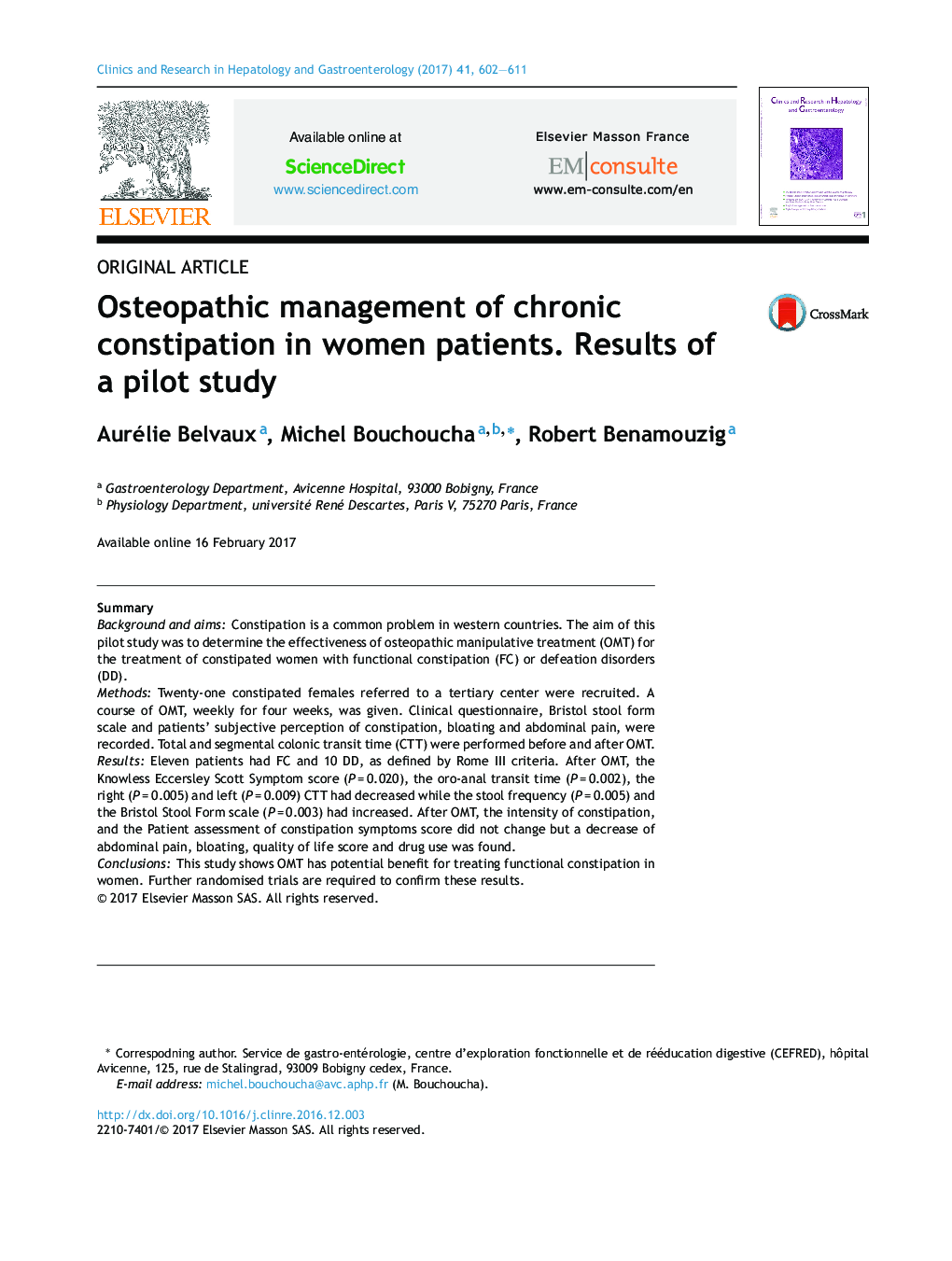| Article ID | Journal | Published Year | Pages | File Type |
|---|---|---|---|---|
| 5657747 | Clinics and Research in Hepatology and Gastroenterology | 2017 | 10 Pages |
SummaryBackground and aimsConstipation is a common problem in western countries. The aim of this pilot study was to determine the effectiveness of osteopathic manipulative treatment (OMT) for the treatment of constipated women with functional constipation (FC) or defeation disorders (DD).MethodsTwenty-one constipated females referred to a tertiary center were recruited. A course of OMT, weekly for four weeks, was given. Clinical questionnaire, Bristol stool form scale and patients' subjective perception of constipation, bloating and abdominal pain, were recorded. Total and segmental colonic transit time (CTT) were performed before and after OMT.ResultsEleven patients had FC and 10 DD, as defined by Rome III criteria. After OMT, the Knowless Eccersley Scott Symptom score (PÂ =Â 0.020), the oro-anal transit time (PÂ =Â 0.002), the right (PÂ =Â 0.005) and left (PÂ =Â 0.009) CTT had decreased while the stool frequency (PÂ =Â 0.005) and the Bristol Stool Form scale (PÂ =Â 0.003) had increased. After OMT, the intensity of constipation, and the Patient assessment of constipation symptoms score did not change but a decrease of abdominal pain, bloating, quality of life score and drug use was found.ConclusionsThis study shows OMT has potential benefit for treating functional constipation in women. Further randomised trials are required to confirm these results.
